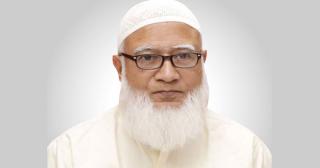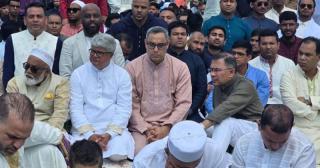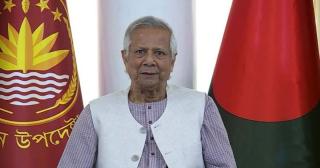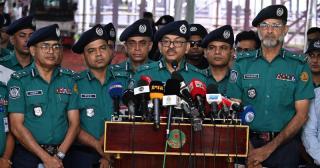Local and international experts at R2F webinar emphasize reforms, criminal accountability, and fair elections
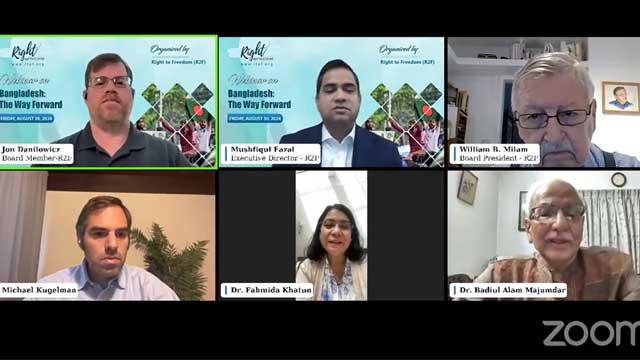
At a recent discussion hosted by Right to Freedom (R2F), speakers stressed the importance of the Bangladeshi government prioritizing necessary reforms, ensuring the prosecution of criminals, and creating a conducive environment for free, fair, and impartial elections. The panel highlighted the urgency of addressing issues such as enforced disappearances, extrajudicial killings, and corruption, all while keeping the aspirations of the people in mind.
The speakers noted that the interim government formed in Bangladesh following the mass student uprising can be considered a revolutionary government. They emphasized that the expectations from this government are high, and urgent reforms across all collapsed state institutions should begin without delay.
The panel also suggested that the government’s reform agenda should be discussed with political parties and called for a ‘National Charter’ to be signed based on consensus. Those involved in disappearances, murders, and corruption, they argued, must be brought to justice.
The webinar was moderated by Right to Freedom Board Member Jon Danilowicz, with a brief introduction of the panel provided by R2F Executive Director Mushfiqul Fazal Ansarey. Ambassador (Ret.) William B. Milam, President of the R2F Board, delivered the opening remarks.
In his introduction, Danilowicz acknowledged Ansarey’s relentless efforts at the policy-making level in various countries, including the U.S., to restore democracy and human rights in Bangladesh.
Key speakers included Dr. Fahmida Khatun, Executive Director of the Centre for Policy Dialogue (CPD); Michael Kugelman, Director of the South Asia Institute at the Wilson Center in Washington, D.C.; and Dr. Badiul Alam Majumdar, Secretary of Citizens for Good Governance. The webinar aimed to foster discussions on critical aspects of Bangladesh’s new journey under the leadership of Nobel Laureate Professor Muhammad Yunus.
Dr. Badiul Alam Majumdar emphasized the need for drastic reforms to ensure free and fair elections, expressing hope for a better and renewed Bangladesh. He also highlighted the importance of reorganizing broken institutions to prevent a repeat of past failures. Dr. Majumdar stressed that the 15th Amendment should be declared unconstitutional, citing its illegal enactment.
Dr. Fahmida Khatun pointed out that while the list of immediate and mid-term measures for the interim government is extensive, some actions must be initiated during its term. She urged the government to take these initiatives promptly, recognizing the enormous challenges ahead, such as ensuring political stability and restoring law and order—both prerequisites for economic prosperity.
Dr. Khatun also discussed the impact of political turmoil, especially during the student-led movement, on the economy. She noted the past regime’s inflated growth data, emphasizing that the economy now requires institutional reforms to bring discipline to the economic system. She underscored the need to dismantle the corruption model that has developed over decades, benefiting a select few while depriving the broader population.
Michael Kugelman, a South Asian affairs expert, highlighted the importance of maintaining a careful and balanced relationship with India, emphasizing that Bangladesh cannot afford to lose this partnership due to its significance in trade, border security, and geopolitics. He advised the interim government to engage with New Delhi while maintaining a principled stance against any undue influence from India.
Kugelman also suggested that Bangladesh’s domestic policy priorities are closely linked to its foreign policy and that maintaining law and order will impact global perceptions and investor confidence.
Kugelman further noted that Chief Adviser Professor Muhammad Yunus’ participation in the 79th UN General Assembly (UNGA) in September would be a significant opportunity to share his government’s economic plans and seek international support.
He suggested that Prof. Yunus use this platform to address the Rohingya refugee crisis, emphasizing the need for continued international assistance amid the global focus on conflicts in Gaza and Ukraine.
In conclusion, Kugelman highlighted the importance of diplomatic outreach for Bangladesh, particularly with major economic partners like China, Japan, the EU, and the US, in light of the country’s precarious economic situation. He also emphasized that Prof. Yunus’ reputation as a fervent supporter of democracy could be an asset in restoring Bangladesh’s global standing.










